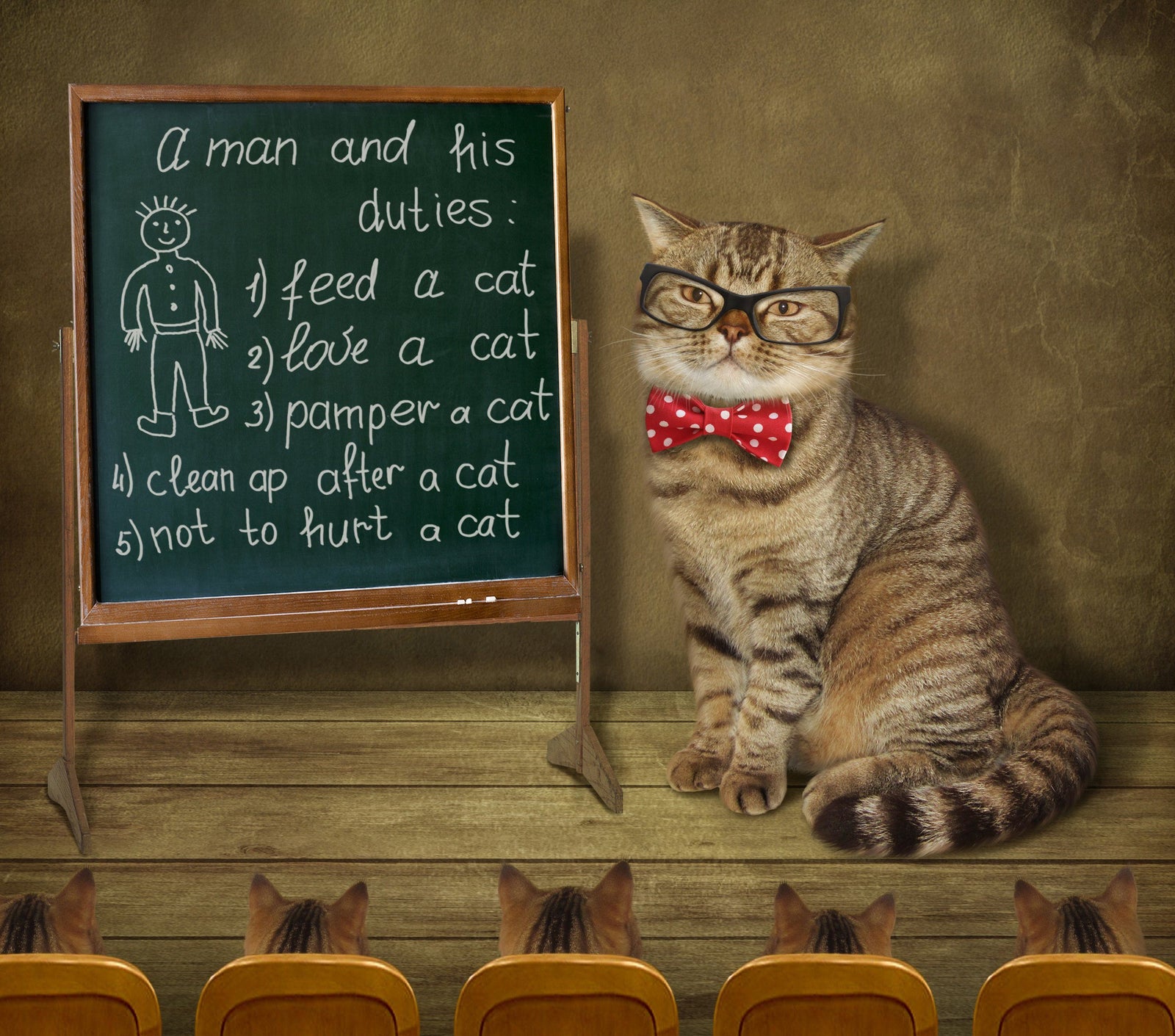
Are you guilty of not always following the doctor’s orders?
We humans are like that. But don’t let that bad habit extend to your fur babies.
When it comes to following the Vet’s recommendations, these are the big four that your cat’s doctor really wants you to remember.
Litter Boxes

One of the hardest recommendations to get cat parents to comply with revolves around litter boxes. Have you ever wondered how many litter boxes you need? According to veterinarian Dr. Geoff DeWire, households with multiple cats should have at least one litter box per cat, plus one.
For example, if you’re a two-cat household, you should also be a three-litter-box household. If you have four cats, you should have five boxes. And so on.
Also, each litter box should be located in a different part of the house, says Dr. DeWire. This ensures that each cat can have his or her own privacy if your cats need to use their boxes at the same time.
It may seem strange to think that an animal who has no problem licking himself in the middle of the living room floor needs privacy, but when it comes to potty time, cats have different standards. From an evolutionary perspective, using the litter box is the time when a cat thinks he’s most vulnerable to predators, which may include other cats. Giving each cat his or her own space can go a long way to reducing stress and health problems for your furry friends.
Of course, it’s not always realistic to expect cat parents to accommodate this request when they have two or more cats. It’s pretty challenging to find three or more places around the home you’re willing to surrender to your cats’ bathroom habits. Try to get as close as possible to meeting the “1 box per cat + 1” rule and your cats will thank you for it.
Home Environment
Despite the fact that cats have been domesticated for hundreds of years, there’s a fine line between your pampered cat and her natural instincts. Cats are driven by instinct, even today. That’s why they love to look out the window, watch birds, and hunt down any little critters that may get in or near your house.
When cats can’t express their natural instincts, they can become stressed - and for cats, stress often manifests as illness. Make sure that your home has plenty of environmental enrichment that caters to your cat’s natural instincts, recommends Dr. DeWire.
This means setting up perches where your cat can survey her territory both inside and outside the home. If your cat is of the indoor-only variety, be sure she has access to windows where she can keep the birds in check.
Your cat also needs to hunt. Since we’re not proponents of pitting your cat against another living thing, we recommend investing a couple bucks in a cat-friendly laser pointer. Spend 5 to 15 minutes each day playing with your cat so she can let out her wild side. Not only will she get some much needed exercise, but she’ll also get to scratch that instinctual itch and relieve any pent up stress.
Food & Water

Like fighting over or waiting for an available litter box, your cat doesn’t want to struggle to get food or water either. What’s more, when it comes to food and water cats can be territorial, meaning they will protect what’s theirs even if it means causing another cat grief or physical harm, says Dr. DeWire.
If you’re a multi-cat household, make sure each cat has his or her own space. Observe your cats and note where each one likes to hang out. Chances are, each of your cats has a favorite lounge spot, perch, or hide out.
Those are the areas that each of your cats have claimed for themselves. Respect their self-imposed territories and give each cat a food and water dish within his or her own borders.
Weight Gain

This is a big one, says Dr. DeWire. Since the days of Garfield, the big fat cat phenomenon has been an uphill battle for veterinarians. While many cat lovers find fat cats to be cute, funny, or even normal, it’s an epidemic that needs to stop.
It may seem like no big deal if your cat has a bit more to love around the middle, but it’s actually a major health hazard. Even one to two extra pounds can lead to problems like inflammation, urinary blockage, and diabetes.
Consider this: a healthy cat weight is about 10 pounds for domesticated cats. If your cat gains 2 pounds, that’s a 20 percent body mass increase. That would be the equivalent of a 150 pound adult woman gaining 30 pounds.
Preventing cat obesity should always be a top priority for pet parents. If your cat is overweight, there are things you can do to help your cat lose a few pounds.
Start by reading the label on your cat’s food. Most pet parents simply fill their pets’ bowls to the top and let Fluffy be the judge. Help your cat with portion control by only giving your cat the recommended amount of food based on his ideal weight.
All cats need exercise, too. If your cat is an indoor cat, he’s likely not getting the daily exercise he needs. Spend at least 10 minutes giving your cat a cardio workout by playing with him. Use a laser pointer, a feather, or any toy your cat’s shown an interest in to get him moving.
By preventing overweight and obesity in your cat, you’ll go a long way to preventing disease and enjoying a long, healthy life with your fur baby.
----



Follow Us